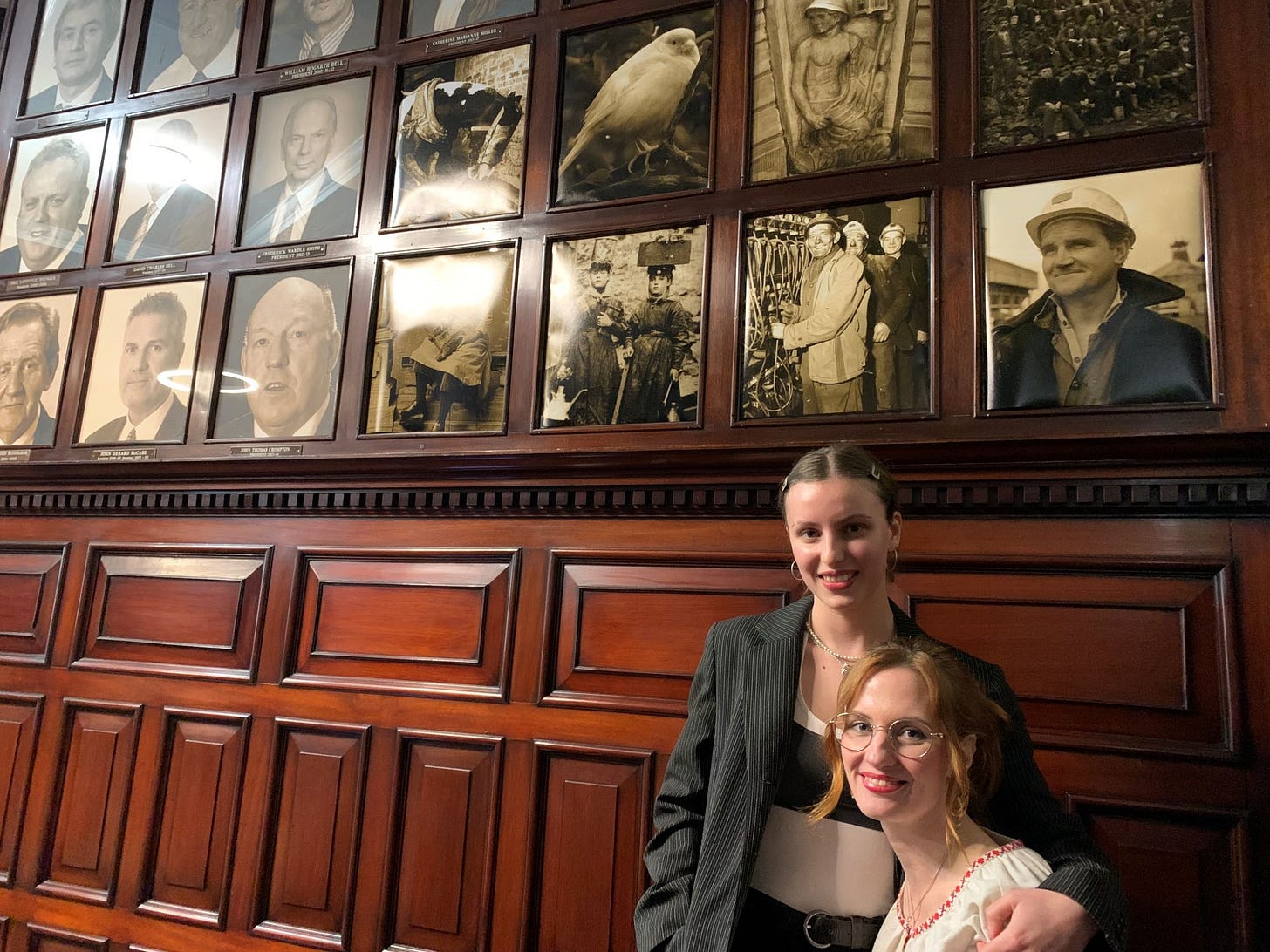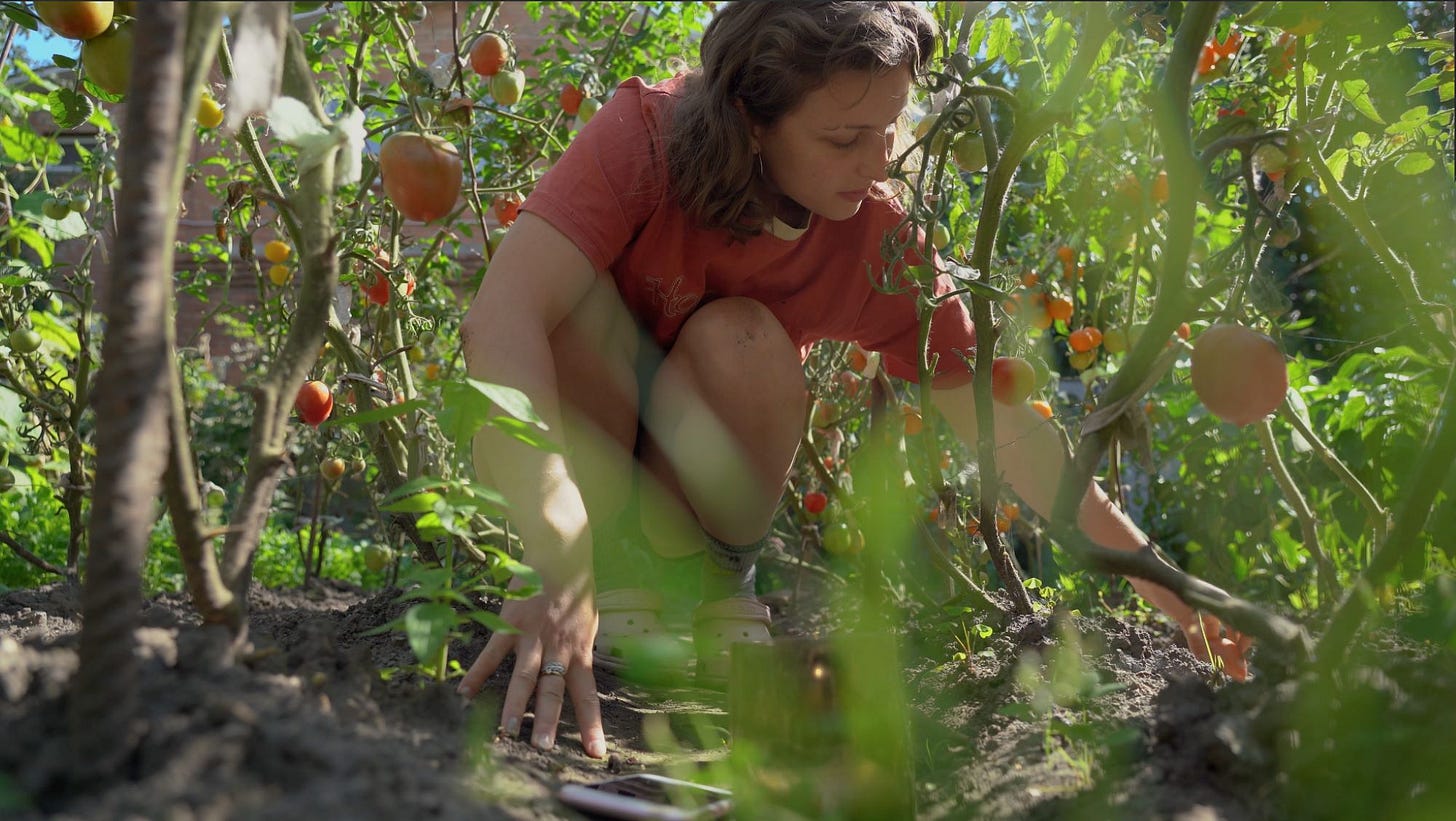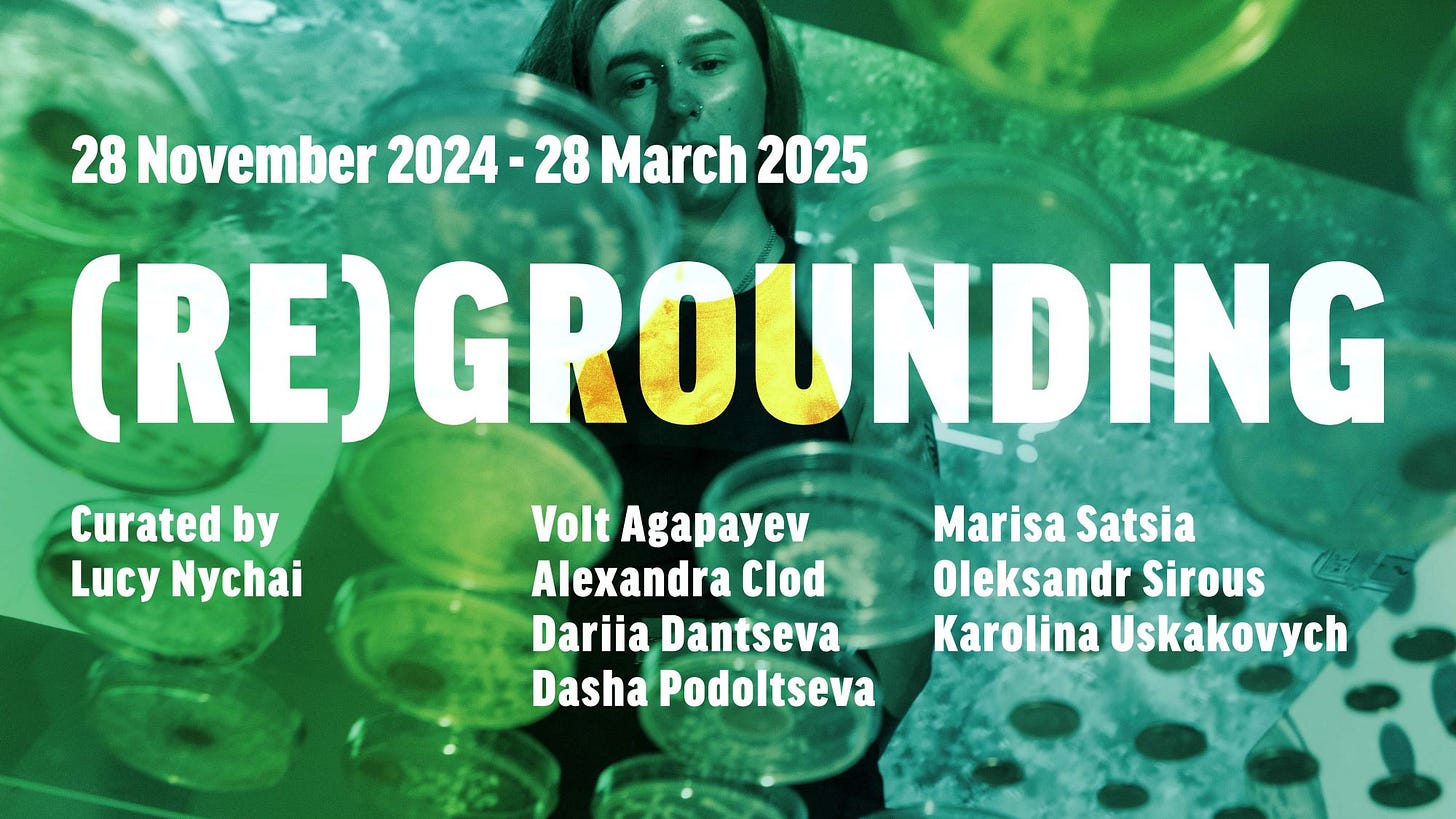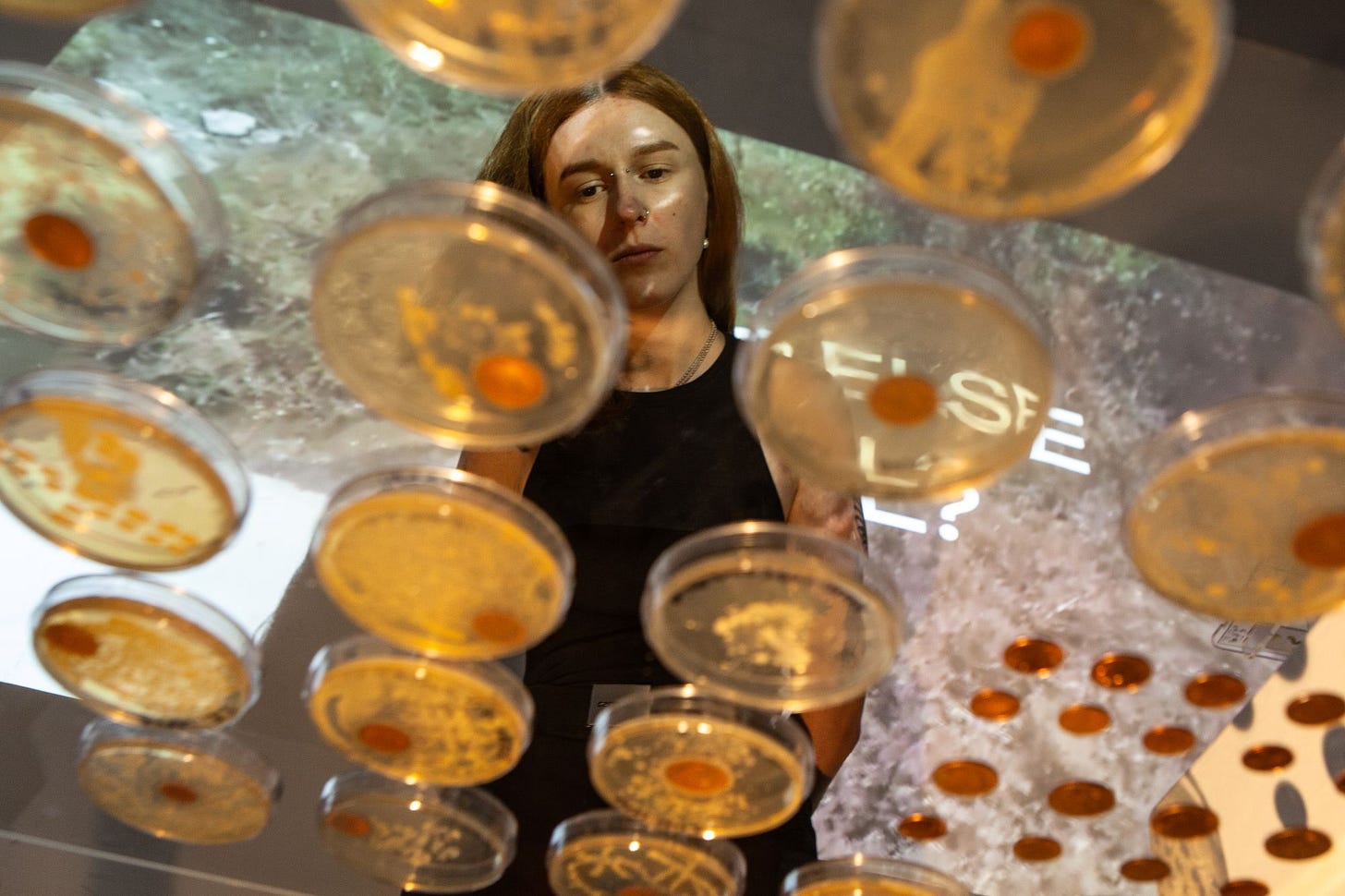Artists highlight North East & Ukraine shared heritage
The work of two years comes together in online exhibition
Pop-up exhibitions and flash mob performances have their place but projects initiated by D6 dig deep – quite literally in the case of its latest, (Re)Grounding - and evolve over time.
Visual arts producers based in Newcastle’s Charlotte Square, D6 work with artists and peer organisations in the UK and overseas, providing platforms for work, building networks and maintaining cultural links even when politics and diplomacy fail.
Take the case of Ukraine, never out of the headlines since the Russian invasion of 2022 and its perceived future now being thrashed out by a man hell bent on its suppression and another seemingly more interested in minerals than a moral right to self-determination.
Ukraine’s underground resources have been a thread in the (Re)Grounding project with artists from that country working in the North East and finding common ground in a shared history of mining and cultivation.
After two years, the final (Re)Grounding element is an online exhibition that can be explored until the end of the month.
But first a recap at D6 with producer Matt Denham and Helen Holtom who looks after audience development.
Matt says links with Ukraine go back a decade to when D6 co-founder Clymene Christoforou visited Kyiv on a British Council fellowship.
She met members of a Ukrainian organisation called The Congress of Cultural Activists and also Izolyatsia, a “non-profit, non-governmental platform for cultural initiatives” founded in 2010 on the site of an old factory in Donetsk.
Forced to relocate to Kyiv in 2014 when the Russians came and turned the factory/cultural centre into a prison, Izolyatsia continues to focus attention on the contested coalmining region of Eastern Ukraine known as Donbas.
Matt talks of “ongoing conversations” and “a desire to make something happen”. Then the British Council and the Ukraine Institute jointly announced a UK/Ukraine Season of Culture.
Conceived to celebrate 30 years of diplomatic relations between the two countries, the 2022 Russian invasion forced a change of emphasis. Providing a platform for Ukrainian creative voices to express themselves came to the fore.
The (Re)Grounding programme, devised by D6 and its Ukrainian partners in response to the climate emergency, became part of the UK/Ukraine Season of Culture but for it, too, the invasion changed things.
“Initially we were planning to send two artists to Ukraine and support them in creating new work, but obviously we had to pause and re-think,” says Matt.
“We didn’t want to put any pressure on delivering a cultural programme in wartime but for Izolyatsia it was really important to have Ukrainian culture visible internationally.”
It was decided to move the project to the UK.
Lucy Nychai, from The Congress of Cultural Activists, recruited as the (Re)Grounding curator, made an open call for Ukrainian artists wanting to get involved in the project.
“We got hundreds of responses,” says Helen.
“Eventually we were able to offer residencies to Karolina Uskakovych and Alexandra Clod.
“They came on a research visit initially, exploring the shared industrial heritage of the North East and parts of Ukraine, and then each made a presentation at The Common Room in Newcastle (home of The Mining Institute).
“Karolina had already started thinking around the idea of community gardens and for Alexandra the inspiration was connections with her grandfather, a miner in the Donetsk region.
“She’d investigated mining archives in The Common Room and at Woodhorn and visited the Durham coal beaches.”
I was at that memorable presentation where the pair had created a photo installation in the lecture theatre, adding to the portraits of Mining Institute past presidents (“old white men,” one of them said with a twinkle) images depicting often overlooked aspects of the industry they had presided over.
Following their hectic North East residency, there was an exhibition of the two artists’ work at the NewBridge Project in Shieldfield.
It included Karolina’s mapping of the area’s community gardens and Alexandra’s beautiful ‘still life’ photos of coal and flowers - inspired, says Matt, by the idea of ‘katabasis’ in Greek mythology, the hero’s journey to the underworld to obtain treasure.
“Alex was drawing parallels between that and the work of miners. What might you offer to Persephone (Queen of the Underworld) in exchange for coal?”
The exhibition proved a success, at which point, says Matt: “We realised that we weren’t done.”
Nor were the British Council. They wanted to do a legacy programme and the (Re)Grounding project was one of the few it continued to support, with other funders chipping in too.
“This enabled us to expand the cohort of artists we were working with,” says Helen.
Four other Ukrainian artists became involved and one from Cyprus, where D6 also has an office.
It happened that Dariia Dantseva, from Ukraine, shares an interest in ‘biohacking’ with Marisa Satsia, from Cyprus, so they were introduced and together investigated contamination by copper mining on the Mediterranean island.
Now the work is done but all the strands have been pulled together in the fully contextualised digital exhibition which can be explored online here until March 28.
But for D6 (full title D6: Culture in Transit), is anything ever quite done? An earlier years-long project, Contested Desires, looking at colonialism, is still relevant and throwing out ideas.
It will be discussed later this month.
Patrick Ngabonziza, a cultural practitioner based in Gateshead and London and who was involved in Contested Desires, will be speaking about it at an online ‘Thinking International’ event taking place at 3.30pm on March 26, organised by the North East Culture Partnership.
The same longevity is likely to be the case with Re(Grounding) as the relationships it has fostered continue to bear fruit and the sparks of inspiration fly.






